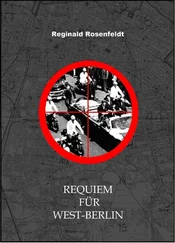Isaiah Berlin - Russian Thinkers
Здесь есть возможность читать онлайн «Isaiah Berlin - Russian Thinkers» весь текст электронной книги совершенно бесплатно (целиком полную версию без сокращений). В некоторых случаях можно слушать аудио, скачать через торрент в формате fb2 и присутствует краткое содержание. Год выпуска: 0101, Жанр: Старинная литература, на русском языке. Описание произведения, (предисловие) а так же отзывы посетителей доступны на портале библиотеки ЛибКат.
- Название:Russian Thinkers
- Автор:
- Жанр:
- Год:0101
- ISBN:нет данных
- Рейтинг книги:3 / 5. Голосов: 1
-
Избранное:Добавить в избранное
- Отзывы:
-
Ваша оценка:
- 60
- 1
- 2
- 3
- 4
- 5
Russian Thinkers: краткое содержание, описание и аннотация
Предлагаем к чтению аннотацию, описание, краткое содержание или предисловие (зависит от того, что написал сам автор книги «Russian Thinkers»). Если вы не нашли необходимую информацию о книге — напишите в комментариях, мы постараемся отыскать её.
Russian Thinkers — читать онлайн бесплатно полную книгу (весь текст) целиком
Ниже представлен текст книги, разбитый по страницам. Система сохранения места последней прочитанной страницы, позволяет с удобством читать онлайн бесплатно книгу «Russian Thinkers», без необходимости каждый раз заново искать на чём Вы остановились. Поставьте закладку, и сможете в любой момент перейти на страницу, на которой закончили чтение.
Интервал:
Закладка:
process, for our civilisation is far from exhausted yet.
Civilisation, humane culture, meant more to the Russians, latecomers to Hegel's feast of the spirit, than to the blase natives of the west. Turgenev clung to it more passionately, was more conscious of
its precariousness, than even his friends Flaubert and Renan.But unlike
them, he discerned behind the philistine bourgeoisie a far more furious
opponent-the young iconoclasts bent on the total annihilation of his
world in the certainty that a new and more just world would emerge.
He understood the best among these Robespierres, as Tolstoy, or even
Dostoevsky, did not. He rejected their methods, he thought their goals
naive and grotesque, but his hand would not rise against them if this
meant giving aid and comfort to the generals and the bureaucrats. He
offered no clear way out: only gradualism and education, only reason.
Chekhov once said that a writer's business was not to provide solutions,
only to describe a situation so truthfully, do such justice to all sides
of the question, that the reader could no longer evade it. The doubts
Turgenev raised have not been stilled. The dilemma of morally
sensitive, honest, and intellectually responsible men at a time of acute
polarisation of opinion has, since his time, grown acute and worldwide. The predicament of what, for him, was only the 'educated section' of a country then scarcely regarded as fully European, has
come to be that of men in every class of society in our day. He recognised it in its earlier beginnings, and described it with incomparable sharpness of vision, poetry, and truth.
Appendix
As an illustration of the political atmosphere in Russia in the 1 87os
and 8os, especially with regard to the mounting wave of political
terrorism, the account that follows of a conversation with Dostoevsky
by his editor, A. S. Suvorin, may be of interest. Both Suvorin and
'Dostoevsky were loyal supporters of the autocracy and were looked
upon by liberals, not without reason, as strong and irredeemable
reactionaries. Suvorin's periodical, Ntw Timts (NovrJt vrtmyo), was
the best edited and most powerful extreme right-wing journal published
in Russia towards the end of the nineteenth and the beginning of the
..
R U S S IAN THINKERS
twentieth century. Suvorin's political position gives particular point
to this entry in his diary .1
On the day of the attempt by Mlodetsky1 on Loris Melikov I
was with F. M. Dostoevsky.
He lived in a shabby little apartment. I found him sitting by a
small round table in the drawing-room, he was rolling cigarettes;
his face was like that of someone who had just emerged from a
Russian bath, from a shelf on which he had been steaming himself
. . . I probably did not manage to conceal my surprise, because he
gave me a look and after greeting me, said 'I have just had an attack.
I am glad, very glad, to see you' and went on rolling his cigarettes.
Neither he nor I knew anything about the attempted assassination.
But our conversation presently turned to political crimes in general,
and a [recent] explosion in the Winter Palace in particular. In the
course of talking about this, Dostoevsky commented on the odd
attitude of the public to these crimes. Society seemed to sympathise
with them, or, it might be truer to say, was not too clear about how
to look upon them. 'Imagine', he said, 'that you and I are standing
by the window of Datsiaro's shop and looking at the pictures. A
man is standing near us, and pretending to look too. He seems to be
waiting for something, and keeps looking round. Suddenly another
man comes up to him hurriedly and says, "The Winter Palace will
be blown up very soon. I've set the machine." We hear this. You
must imagine that we hear it-that these people are so excited that
they pay no attention to their surroundings or how far their voices
amy. How would we act? Would we go to the Winter Palace to
warn them about the explosion, would we go to the police, or get
the corner constable to arrest these men? Would you do this?'
'No, I would not.'
'Nor would I. Why not? After all, it is dreadful; it is a crime.
We should have forestalled it.8 This is what I had been thinking
about before you came in, while I was rolling my cigarettes. I
went over all the reasons that might have made me do this. Weighty,
solid reasons. Then I considered the reasons that would have stopped
me from doing it. They are absolutely trivial. Simply fear of being
1 Dntr�niA A. S. Suflorina, ed. M. G. Krichevsky (Moscow/Petrograd,
1923). PP· I s-r 6. This entry for r 887 is the first in the diary of Dostoevsky's
(and Chekhov's) friend and publisher.
1 lppolit Mlodetsky made his attempt on the life of the head of the
Government on :zo February r 88o,some weeks after the failure ofKhalturin's
attempt to kill the Tsar. He was hanged two days la,ter.
• The Russian word can also mean 'give warning'.
JO.of.

FAT H E R S A N D C H I LD R E N
thought an informer. I imagined how I might come, the kind of
look I might get from them, how I might be interrogated, perhaps
confronted with someone, be offered a reward, or, maybe, suspected
of complicity. The newspapers might say that "Dostoevsky identified the criminals." Is this my affair? It is the job of the police. This is what they have to do, what they are paid for. The liberals would
never forgive me. They would torment me, drive me to despair. Is
this normal? Everything is abnormal in our society; that is how
these things happen, and, when they do, nobody knows how to actnot only in the most difficult situations, but even in the simplest. I might write about this. I could say a great deal that might be good
and bad both for society and for the Government; yet this cannot be
done. About the most important things we are not allowed to talk.'
He talked a great deal on this theme, and talked with inspired
feeling. He added that he would write a novel, the hero of which
would be Alesha Karamazov. He wanted to take him through a
monastery and make him a revolutionary; he would then commit a
political crime; he would be executed. He would search for the
truth, and in the course of this quest would naturally become a
revolutionary . . . 1
1 The editor of this text, which he calls a 'fragment', mentions a passage
in the novel in which Ivan Karamazov speaks to his saintly brother Alesha
about the case of the general who set his dogs to hound a peasant boy to
death before the eyes of his mother; he asks Alesha whether he would want
the general to be killed for this. Alesha, after a tormented silence, says that
he would. 'Bravo' says Ivan.

Index of Names
Compiled by Patricia Utech in
About, E., 161
Balzac, H. de, ZJ, 1 30, 141, 183, 2.86
�hylus, 74
Baratyoaky, E. A., 1 75, 183
Akhsharumov, D. D., 16, 16, 45• so
Baring, M., 162.
Aksaltov, I. S., 6, 1 8-19, 150
Barri:a, M., 79
Aluakov, K. S., 6, 1 8-19, 168
Bartenev, P. 1., 57
Akselrod, P. B., 133
Batyuto, A. I., z.86n, 2.87n
Albertus Magnus, J Z 7
Bayle, P., 1 37
d'Aiembert, J . le R., 7 2.
Baz.a.nov, V. G., z.hn, 2.87n
Alexander I , Emperor, J+• 38-9, 41, 63,
Читать дальшеИнтервал:
Закладка:
Похожие книги на «Russian Thinkers»
Представляем Вашему вниманию похожие книги на «Russian Thinkers» списком для выбора. Мы отобрали схожую по названию и смыслу литературу в надежде предоставить читателям больше вариантов отыскать новые, интересные, ещё непрочитанные произведения.
Обсуждение, отзывы о книге «Russian Thinkers» и просто собственные мнения читателей. Оставьте ваши комментарии, напишите, что Вы думаете о произведении, его смысле или главных героях. Укажите что конкретно понравилось, а что нет, и почему Вы так считаете.










